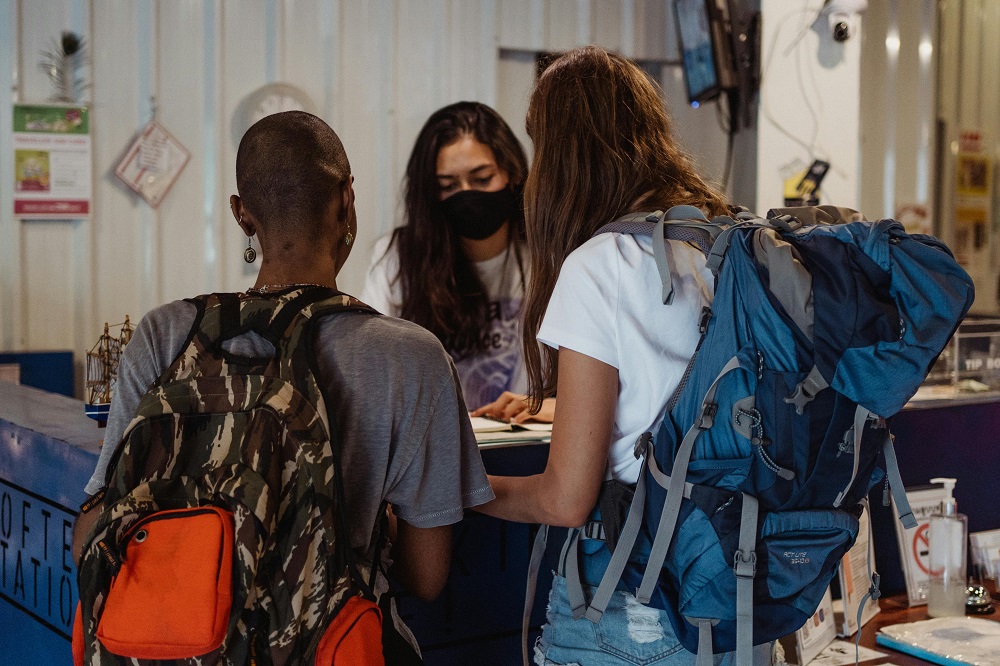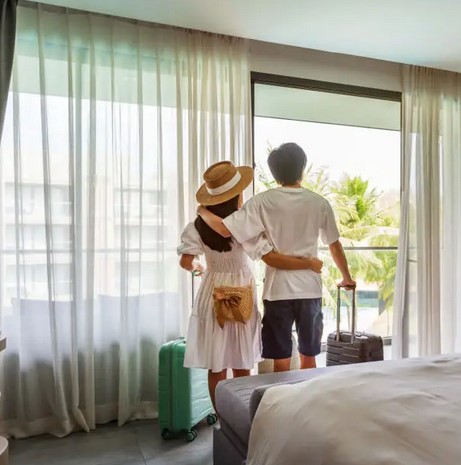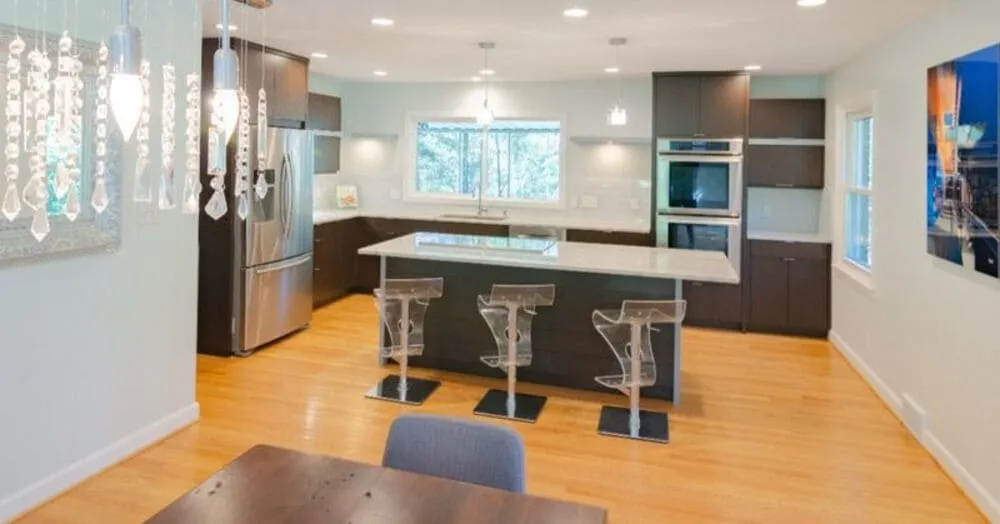Low occupancy during the off-season presents a significant challenge for owners of short-term rental properties in Bulgarian resort areas, such as the Black Sea coast and Bansko, but it also opens up opportunities for creative solutions. Maintaining a steady flow of bookings outside of peak months can increase profitability and turn the property into a reliable source of income year-round. According to the Ministry of Tourism (2023), Bulgaria attracts over 12 million tourists annually, but most of them visit the resorts in the summer or winter, leaving a significant drop in demand during the rest of the year. AirDNA Market Report (2023) notes that occupancy of holiday properties in Bulgaria can fall below 30% in the off-season months, highlighting the need for a strategic approach.
Understanding seasonality in Bulgarian resorts
Seasonality is a major challenge for owners of short-term rental properties in Bulgarian resort areas. In Black Sea resorts, such as Pomorie, Sunny Beach and Golden Sands, the peak season is from June to August, when demand for accommodation is high due to summer tourism. Outside this period (September–May), bookings drop significantly as tourists decrease. In mountain resorts, such as Bansko and Pamporovo, the season is concentrated in the winter (December–March), when ski tourism attracts visitors, while from April to November demand is minimal. This seasonality requires a strategic approach to maintaining occupancy year-round.
According to AirDNA Market Report (2023), short-term rental occupancy in the Black Sea resorts falls to 30–35% in September–May, compared to 85% in the summer. In Bansko, off-season occupancy is below 25%, according to Booking.com Insights (2023). The National Statistical Institute (NSI, 2023) notes that the tourist flow in Bulgaria decreases by 60% outside the peak seasons, which directly affects the profitability of properties.

Dynamic pricing to attract guests
Dynamic pricing is a powerful strategy for increasing occupancy of short-term rental properties during the off-season in Bulgarian resorts. This technique involves adjusting prices in real time based on demand, competition, and local events. For example, in Bansko, where demand drops from April to November, owners can reduce prices by 20–30% to attract guests looking for budget options. Competitive analysis through platforms such as Airbnb and Booking.com allows for determining the optimal price relative to other properties in the region. Various online tools automate this process by analyzing demand and suggesting prices that balance occupancy and revenue. Also, offering discounts for extended stays or last-minute bookings may attract tourists looking for flexibility.
According to Airbnb Host Report (2023), properties using dynamic pricing achieve up to 40% higher occupancy compared to fixed prices, especially in off-season periods. ShortTermRentalz (2023) notes that in European resorts, dynamic pricing increases bookings by 25–30% during the lean months. In Bulgaria, this strategy is particularly effective for attracting guests.
Off-season marketing strategies
Marketing strategies are crucial to increasing off-season bookings in Bulgarian resort areas. Platforms such as Airbnb and Booking.com offer opportunities to optimize listings with professional photos, detailed descriptions, and keywords such as “relaxing vacation” or “budget accommodation” that attract tourists outside of the peak season. Targeted social media campaigns such as Facebook and Instagram allow reaching specific audiences, through advertisements highlighting unique features of the property, such as proximity to spas or a quiet location. According to ShortTermRentalz (2023), targeted marketing on social media increases bookings by up to 28% in European resorts during the off-season.

Attracting alternative tenant groups
Attracting alternative groups of tenants, such as business travelers, digital nomads and local tourists, is an effective strategy to increase occupancy in the off-season period in Bulgarian resorts. Business travelers are looking for comfortable apartments with fast internet and proximity to city centers, while digital nomads value long-term stays with workspaces and reliable Wi-Fi. Local tourists, especially families, are looking for budget weekend getaways to resorts like Sozopol. According to Nomad List, Bansko has marked 231% height in demand by digital nomads over the last five years, making it a top destination in Europe. European Vacation Rental Report (2022) shows that 20% of renters in resort areas during the off-season are digital nomads, and their demand is growing by 15% annually.
To attract these tenants, landlords can highlight amenities such as high-speed internet, work desks, and flexible terms for long-term stays. Social media marketing targeting professional communities or local travelers is also effective. Professional firms such as Flat Manager They make the process easier by tailoring listings for specific audiences and offering discounts for long-term bookings.
Improving the property for year-round interest
Enhancing a property with the right amenities is key to attracting guests during the off-season in Bulgarian resorts. In mountainous regions like Pamporovo, where occupancy drops below 25% from April to November, adding high-speed Wi-Fi, efficient heating/air conditioning, and workspaces attracts digital nomads and business travelers. Other amenities, such as smart thermostats, warm blankets, and access to local activities like spas or cultural events, make a property attractive year-round. Providing information about nearby attractions and instructions on appliances also enhances the guest experience. 68% of guests cite amenities as a major factor in booking during the off-season. (Booking.com Insights, 2023).
Collaboration with local businesses and events
Collaboration with local businesses and events is an effective strategy for attracting guests during the off-season in Bulgarian resorts. The partnerships with restaurants, spas or tour operators can add value to the property through special offers, such as discounts for guests or weekend package deals. Participation in local events, such as festivals or cultural celebrations, also increases the visibility of the property. For example, in Nessebar, where autumn festivals attract visitors, owners can promote their properties as an ideal base for the events. According to Bulgarian Tourism Agency (2023), local events in the Black Sea resorts increase tourist flow by 15–20% in September–October.

Conclusion
Tackling low occupancy during the off-season in Bulgarian resorts requires a combination of strategies: dynamic pricing, targeted marketing, attracting alternative tenant groups such as digital nomads and business travelers, and improving the property with amenities such as Wi-Fi and heating. These approaches, supported by data such as 25–30% growth in bookings through professional marketing (ShortTermRentalz, 2023), can significantly increase profitability in periods of decline when employment falls below 30%. Professional companies facilitate the process by optimizing listings and attracting new audiences. Contact us at flatmanager.bg to help your property be rented year-round.



